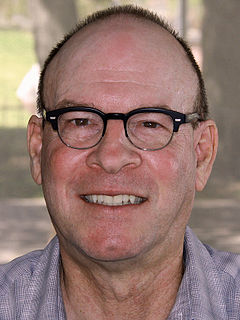A Quote by Adrian Rogers
Related Quotes
Well, start waving and yelling, because it is the so-called Oxford comma and it is a lot more dangerous than its exclusive, ivory-tower moniker might suggest. There are people who embrace the Oxford comma and people who don't, and I'll just say this: never get between these people when drink has been taken. Oh, the Oxford comma. Here, in case you don't know what it is yet, is the perennial example, as espoused by Harold Ross: "The flag is red, white, and blue." So what do you think of it? Are you for or against it? Do you hover in between?
I actually cut my sentences a lot. I'm very aware of the actor, giving them too many words - just a mouthful of words - it's difficult sometimes for an actor. So I'm kind of aware of breaking sometimes the line, the sentence with a comma where maybe there wouldn't be a comma there. Just to give a breathing space for the actor, just to be aware of that.
I think we live in slavery to fear. Most people don't have an answer to the death question and really don't even have a philosophy. That is a puzzle to me. I think even if I was not a Christian, I would want to at least have a personal solution to the death question. Otherwise, death is just a frightening thing.
That the religious right completely took over the word Christian is a given. At one time, phrases such as Christian charity and Christian tolerance were used to denote kindness and compassion. To perform a "Christian" act meant an act of giving, of acceptance, of toleration. Now, Christian is invariably linked to right-wing conservative political thought -- Christian nation, Christian morality, Christian values, Christian family.
Thurber was asked by a correspondent: "Why did you have a comma in the sentence, 'After dinner, the men went into the living-room'?" And his answer was probably one of the loveliest things ever said about punctuation. "This particular comma," Thurber explained, "was Ross's way of giving the men time to push back their chairs and stand up.
I will use a form of punctuation of my own, which will be something like this - when one is beginning he takes a long breath, for this use a capital. When he stops for breath, a comma, and when it is all gone, a period. Don't know the use of a semi-colon, but expect it is when one thinks he is out of breath and isn't.
If a period is a stop sign, then what kind of traffic flow is created by other marks? The comma is a speed bump; the semicolon is what a driver education teacher calls a “rolling stop”; the parenthetical expression is a detour; the colon is a flashing yellow light that announces something important up ahead; the dash is a tree branch in the road.




































